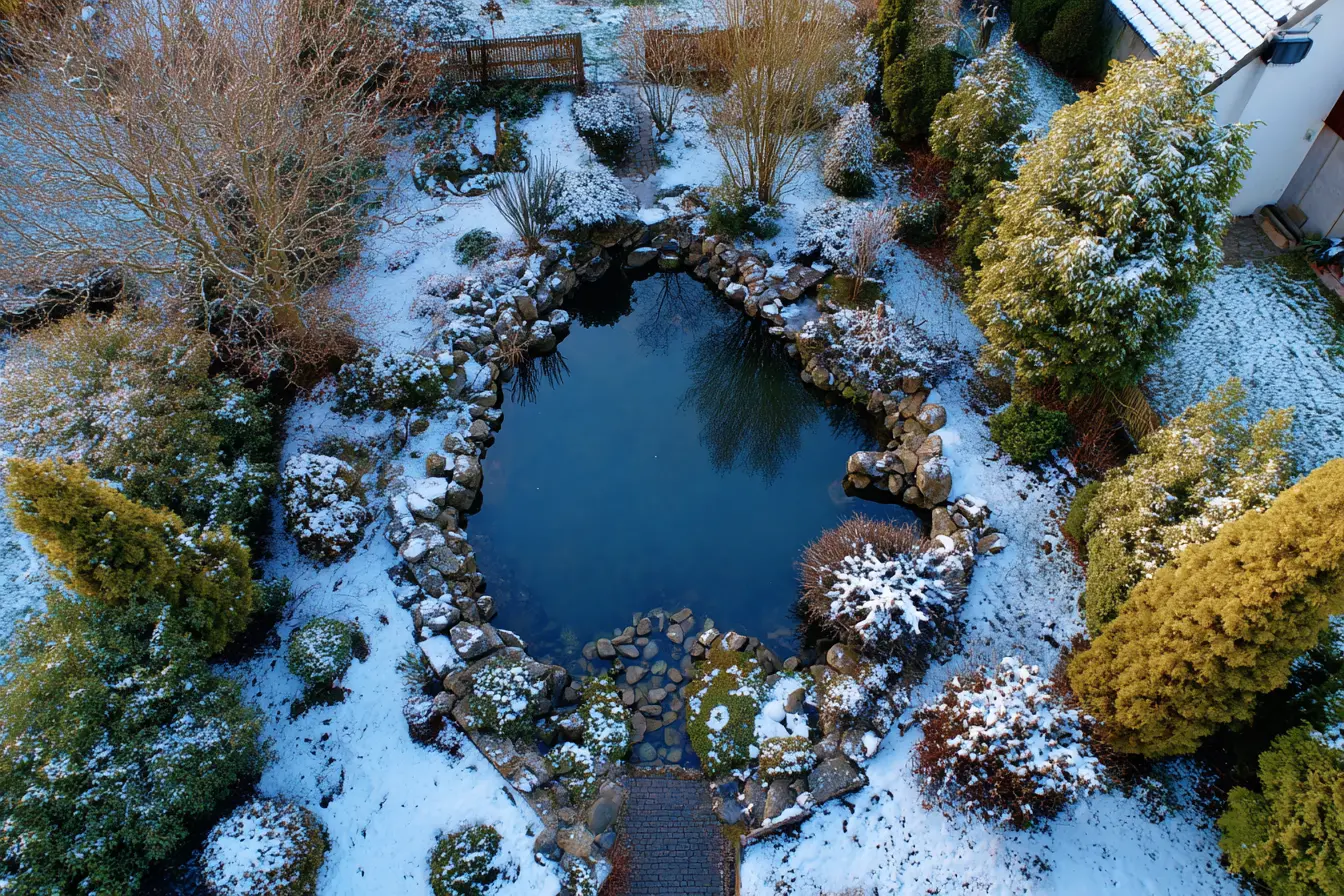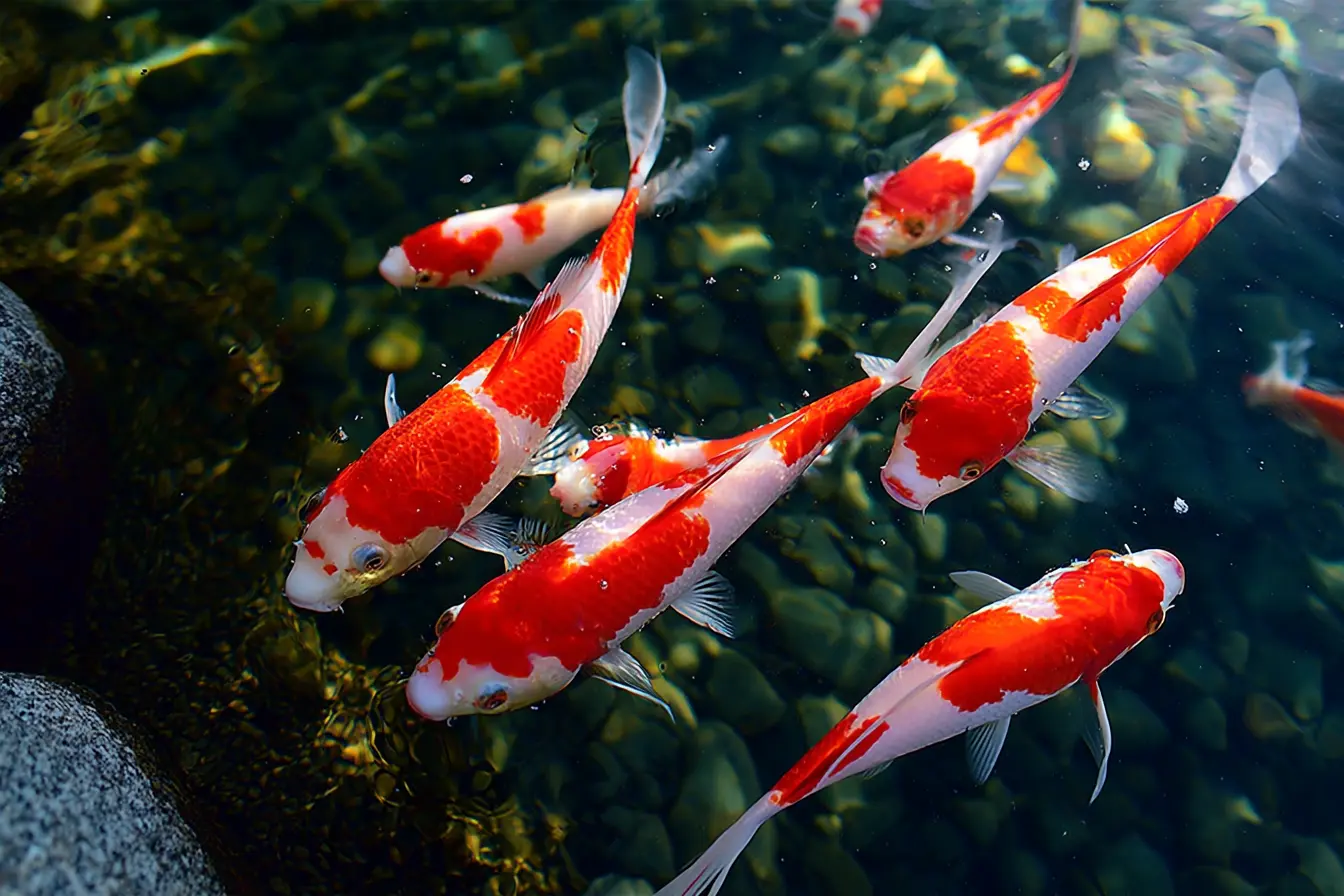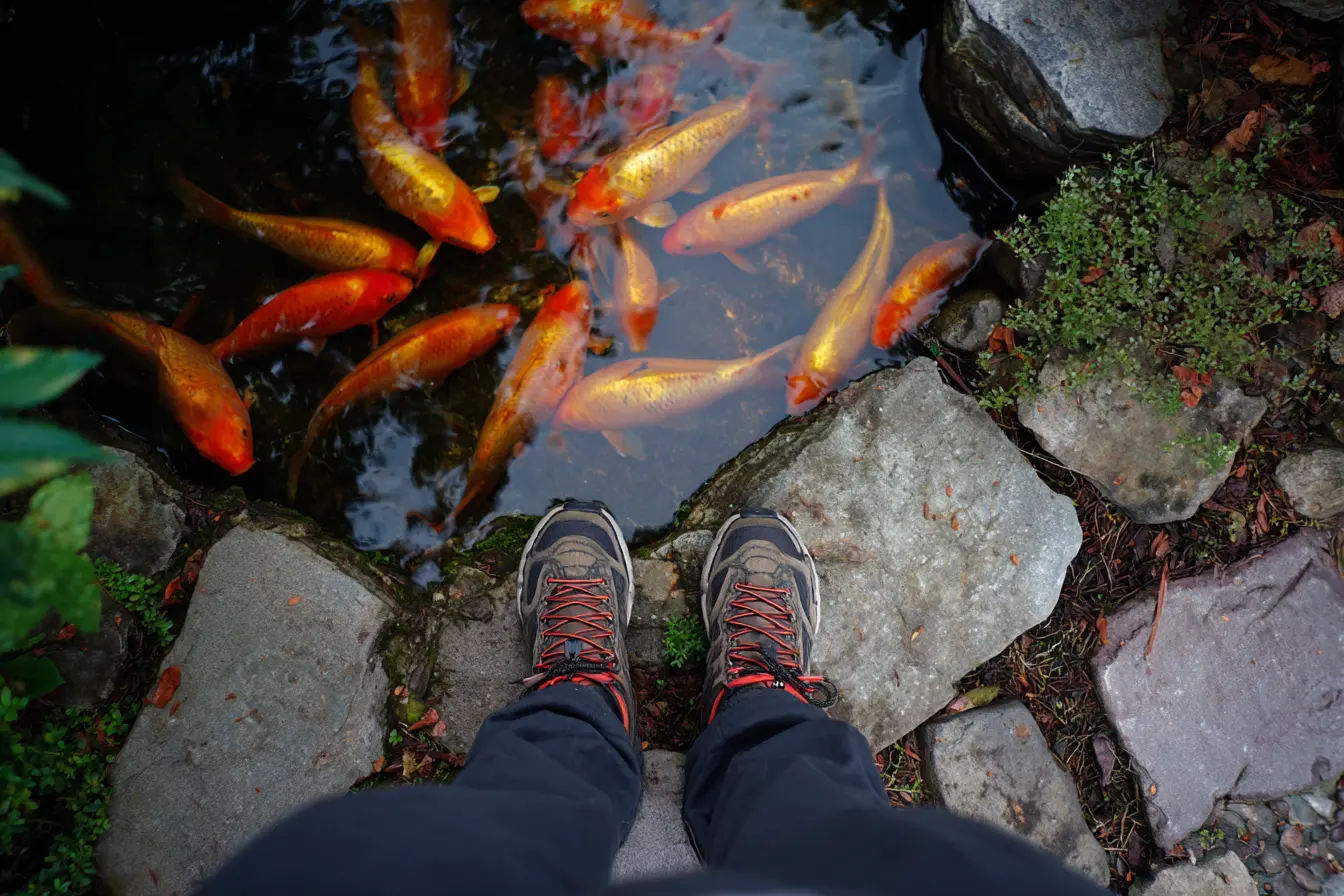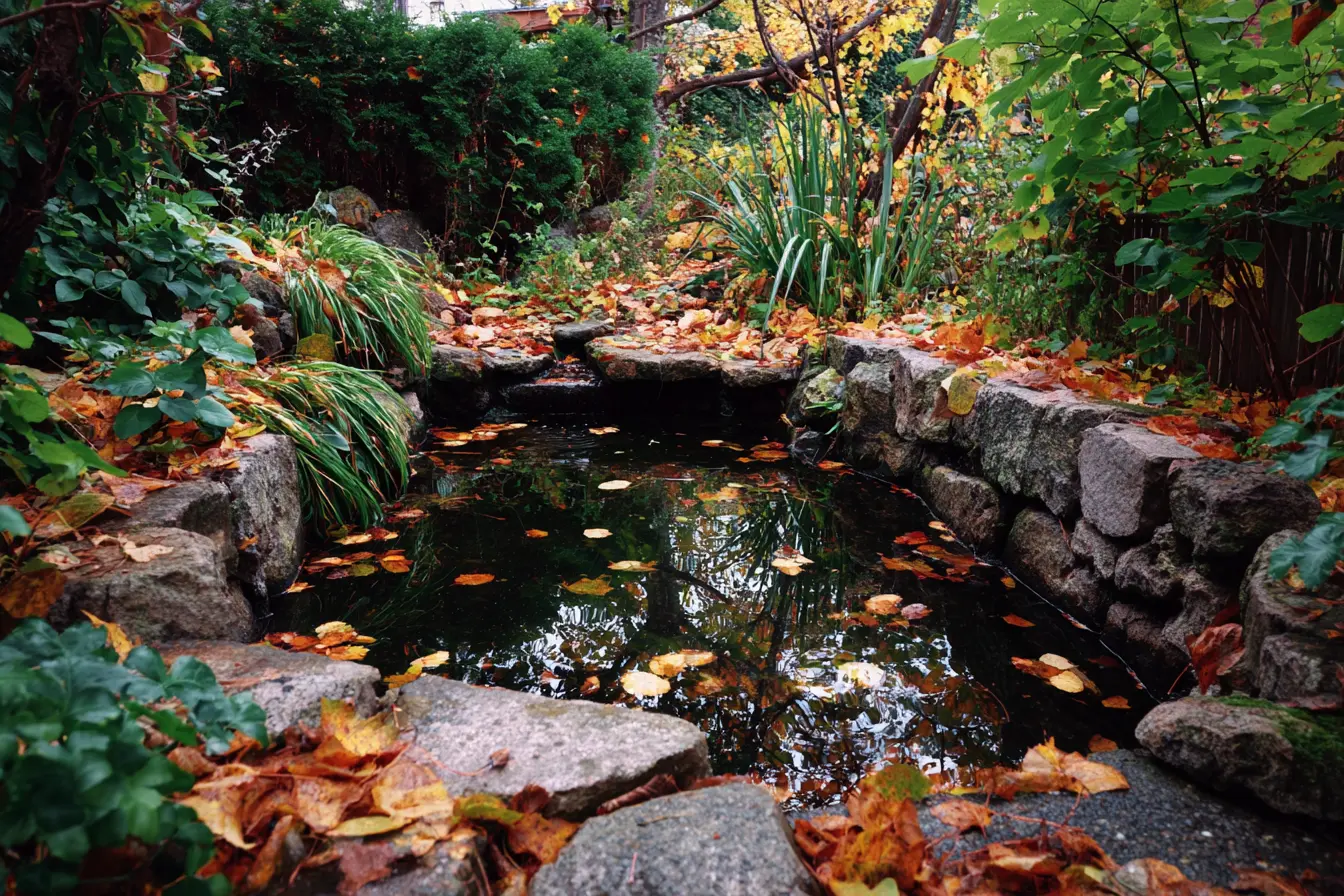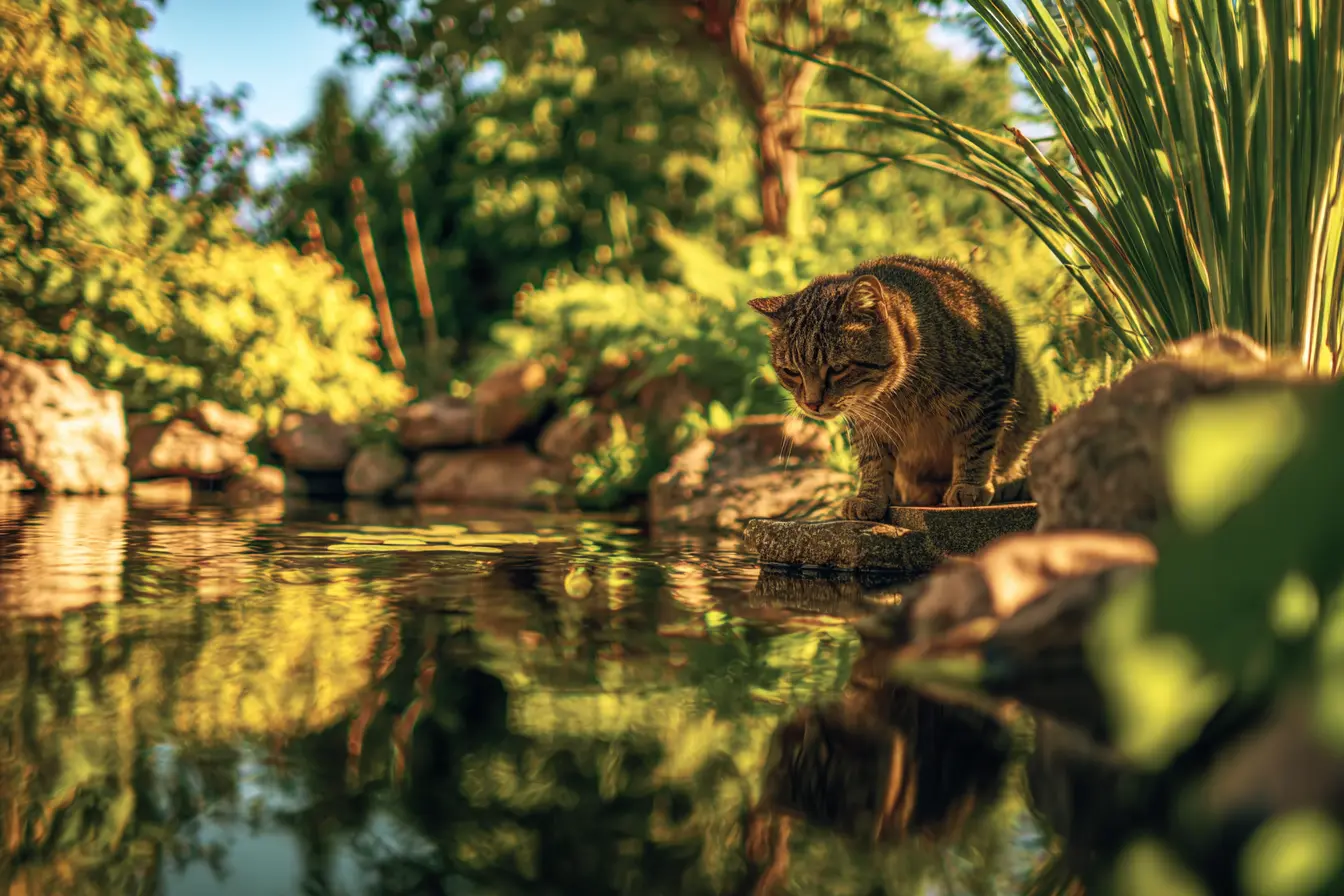
How to Manage Garden Pond Predators
A garden pond is a peaceful oasis for both people and wildlife. However, ponds can sometimes attract unwanted visitors looking for an easy meal. Predators such as herons, cats, foxes, and even certain birds and amphibians can pose a real threat to fish and pond life.
Managing pond predators is essential to protecting your fish, maintaining pond balance, and keeping your pond beautiful and thriving.
This guide explains the types of common pond predators and the best ways to deter them, ensuring your pond remains a safe haven for aquatic life.
Common Garden Pond Predators
Grey Herons
- One of the most common predators in the UK.
- Skilled hunters who can empty a small pond in a few visits.
- Prefer shallow water where they can easily spear fish.
Domestic Cats
- Curious and agile, cats may try to catch fish or disturb pond life.
- Smaller fish are particularly vulnerable.
Foxes
- Opportunistic feeders that may target ponds, especially if they are dry or low.
- May also damage pond liners and structures while digging.
Birds of Prey
- Species like kingfishers or even crows may snatch smaller fish or tadpoles.
- Rare compared to herons, but still possible.
Hedgehogs and Amphibians
- Generally harmless to fish, but can disturb plant life.
- Hedgehogs may accidentally fall in and struggle to escape.
Rats
- Attracted to ponds for water, food, and shelter.
- Can disturb ecosystems and transmit diseases.
Effective Ways to Protect Your Pond
Install a Pond Net
- Place a fine-mesh net across the pond, secured with pegs.
- Prevents herons from fishing and deters cats and foxes.
- Must be regularly cleared of leaves and debris.
- Choose a UV-resistant net for durability.
Create Hiding Places for Fish
- Add plants: Floating plants like water lilies and submerged plants provide shelter.
- Use fish caves or tunnels: Ceramic or plastic shelters on the pond bottom give fish a place to hide quickly.
- Stack rocks strategically: Create crevices and tunnels for fish to retreat into when threatened.
Install a Heron Deterrent
- Fishing line barriers: Stretch clear fishing line around the pond perimeter at varying heights to confuse herons.
- Decoy herons: Fake heron statues can deter real ones, but move them regularly as real herons are intelligent and observant.
- Motion-activated sprinklers: Devices that spray a burst of water when movement is detected can startle predators away.
Build Deeper Areas
- Design the pond with deeper sections (over 60cm) where herons cannot wade easily.
- Steep sides rather than gently sloping edges deter wading birds and foxes.
Use Pond Covers or Pergolas
- Partial covers: Install a timber or metal pergola over the pond to obstruct the view from birds overhead.
- Floating covers: Use floating rings or partial covers that provide shelter without restricting oxygen exchange.
Scare Devices
- Reflective tapes and discs: Hang shiny or reflective objects around the pond; they frighten birds.
- Ultrasonic repellents: Some devices emit a sound that deters cats, foxes, and other mammals without harming them.
Hedgehog and Small Animal Safety
- Provide escape routes: Place ramps or stones at pond edges to allow hedgehogs and frogs to climb out safely if they fall in.
- Avoid vertical pond walls: Make sure at least one shallow sloping side exists for easy access.
Managing Rats
- Avoid feeding near ponds: Excess food attracts rats.
- Keep the pond tidy: Clear dense vegetation and remove potential nesting sites.
- Use humane traps: If rat problems persist, consider pest control advice.
Additional Tips
- Rotate deterrents regularly to prevent predators from becoming accustomed to them.
- Keep a watchful eye, especially during spring and early summer when birds are feeding their young.
- Consider planting thorny bushes (like holly) around the pond to create natural barriers.
- Install pond cameras to monitor predator activity and adjust your strategy accordingly.
Conclusion
Protecting your pond from predators does not have to compromise its beauty or accessibility to beneficial wildlife. With a combination of barriers, hiding places, deterrents, and pond design features, you can create a safe environment where fish and aquatic plants flourish.
A little forethought and regular vigilance will ensure your pond remains a thriving, peaceful haven for years to come — for you and for the right kinds of visitors.
Vets near you
Speciality vets
- Aquatics vet specialists
- Birds vet specialists
- Camelids vet specialists
- Cats vet specialists
- Cattle vet specialists
- Deer vet specialists
- Dogs vet specialists
- Equines vet specialists
- Exotic vet specialists
- Goats vet specialists
- Pigs vet specialists
- Poultry vet specialists
- Sheep vet specialists
- Small Mammals vet specialists
- Wild vet specialists
Vet facilities
- Accessible by public transport
- Blood testing
- Car park nearby
- Client car park
- Dentistry
- Diagnostic imaging
- Disabled public access
- Flea and worm treatments
- Microchipping
- Mobile services
- Neutering
- Open at weekends
- Out-of-hours service
- Referral interests
- Referrals only
- Street parking outside
- Toilets available
- Vaccinations
